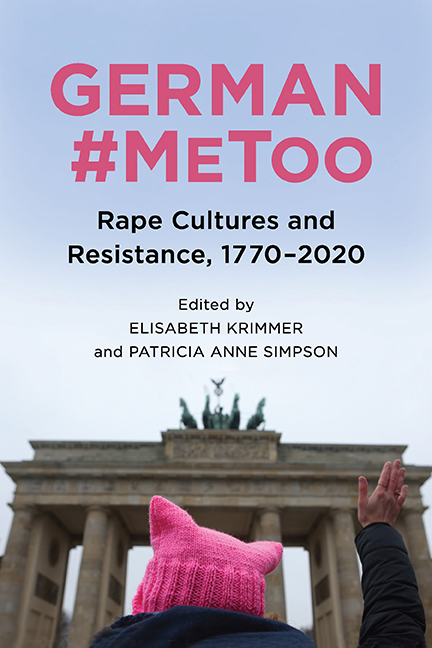10 - Breaking the Silence about Sexualized Violence inLilly Axtser’s and Beate Teresa Hanika’s Young AdultFiction (YAF)
Published online by Cambridge University Press: 08 October 2022
Summary
ADOLESCENCE IS GENERALLY REGARDED as a developmentalphase in which most young adults begin to exploretheir sexuality. One might argue that Westernculture is marked by pervasivesexualization—especially in popular culture—and thatthis heightened awareness of sexuality also plays anincreasingly explicit role in Young Adult Fiction(YAF), although there are successful examples ofYAF, such as the Harry Potter series (1997–2007) orCornelia Funke's Tintenherz (2003; Inkheart, 2005), that mostly eschewexplicit mentions of adolescent sexuality. YAF oftendepicts adolescent sexuality as uncontrollable,awkward, and sometimes dangerous. Abuse of power andsexual assaults are often not labeled as such, norare they problematized within the narrative. Manystory lines draw on old myths of the complicity ofvictims; or they portray sexualized violence as a“natural” form of interaction between the sexes.
Feminist research uses the term “sexualized violence”to refer to all forms of violence that weaponize sexand sexuality in order to exert power. Mithu Sanyal,for example, offers a powerful definition of rape:“Das ist der Grund warum Feministinnen heute vonsexualisierter Gewalt—und nicht von sexueller—Gewaltsprechen, um deutlich zu machen, dass Sex zwar dieWaffe, nicht aber die Motivation einerVergewaltigung ist” (That is why feminists todayspeak of sexualized violence—and not sexualviolence— to make it clear that sex is the weaponbut not the motivation for rape.)
This chapter aims to illustrate how key momentsconnected to the #MeToo movement, includingintroducing the topic of sexualized violence intopublic discourse and labeling it as such, also hadan impact on YAF. Indeed, YAF can empower youngadults to explore sexual desires while settinglimits, and it can provide guidance to thoseaffected by sexualized violence. In the following, Ianalyze two novels that offer unique takes on thetopic: Beate Teresa Hanika's Rotkäppchen muss weinen (Little RedRiding Hood Has to Cry) and Lilly Axster's Die Stadt war nie wach (TheCity Was Never Awake). Both prizewinning novelsportray the psychological and social effects ofabuse on adolescents. In the end, the charactersmanage to break free of the taboo surroundingsexualized violence; they speak out, advocate forone another, and thus regain their agency.
- Type
- Chapter
- Information
- German #MeTooRape Cultures and Resistance, 1770-2020, pp. 244 - 262Publisher: Boydell & BrewerPrint publication year: 2022



